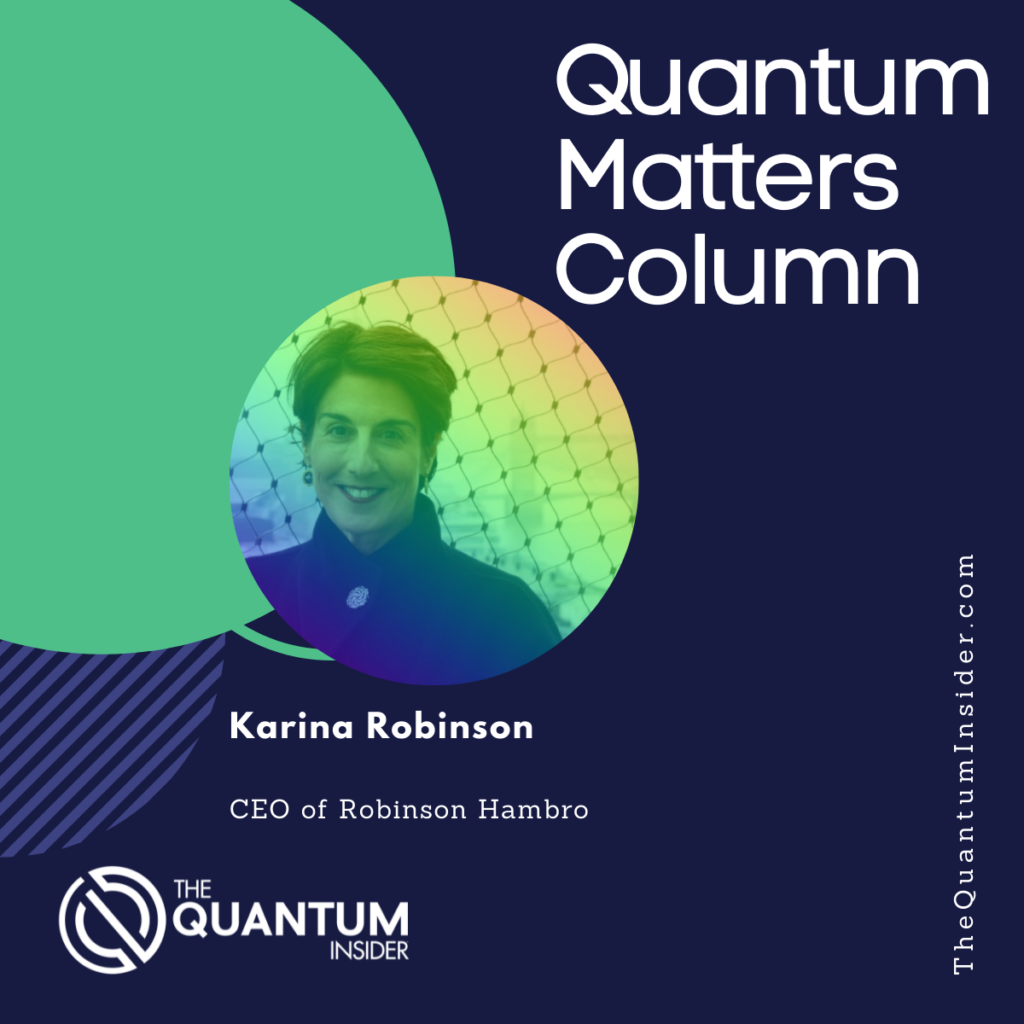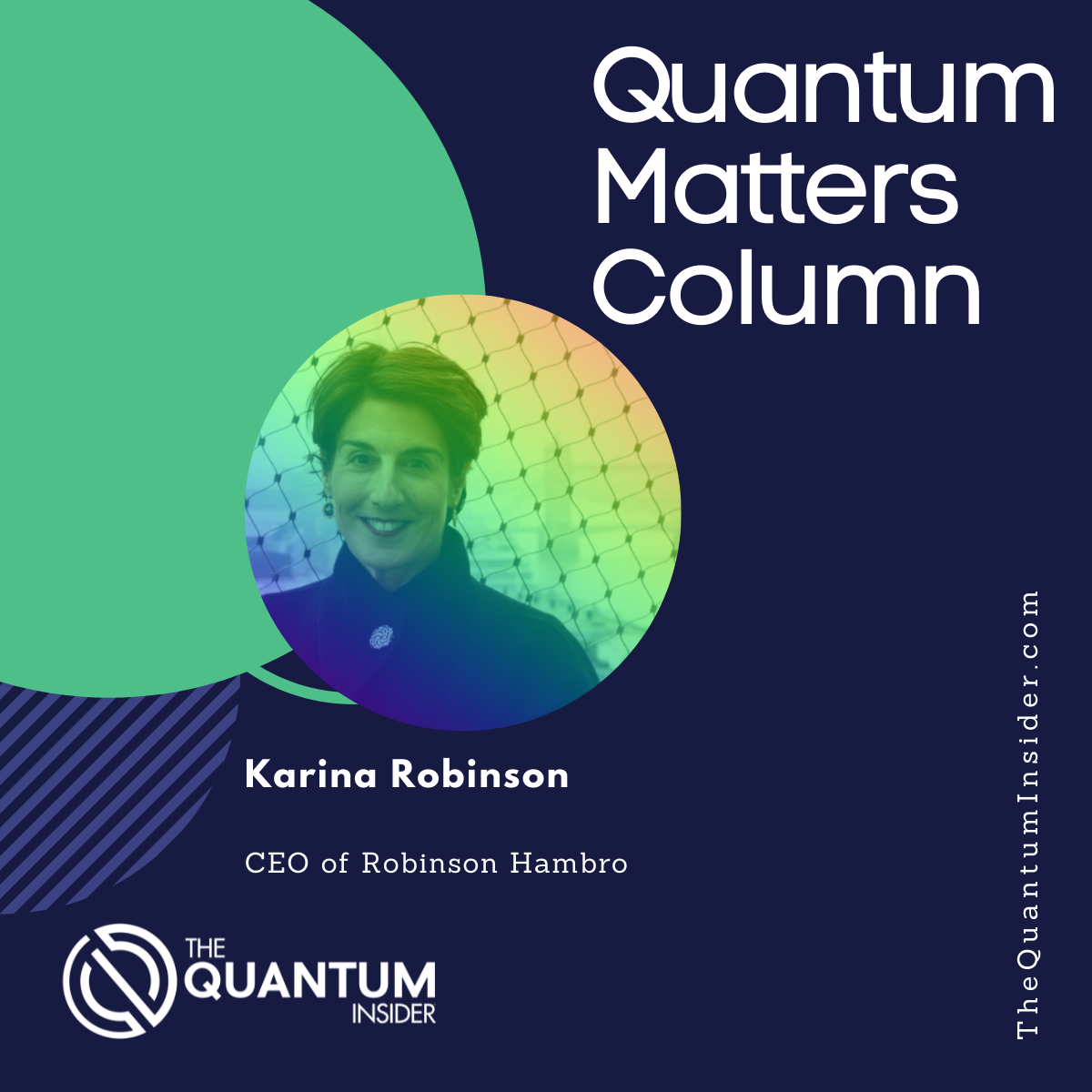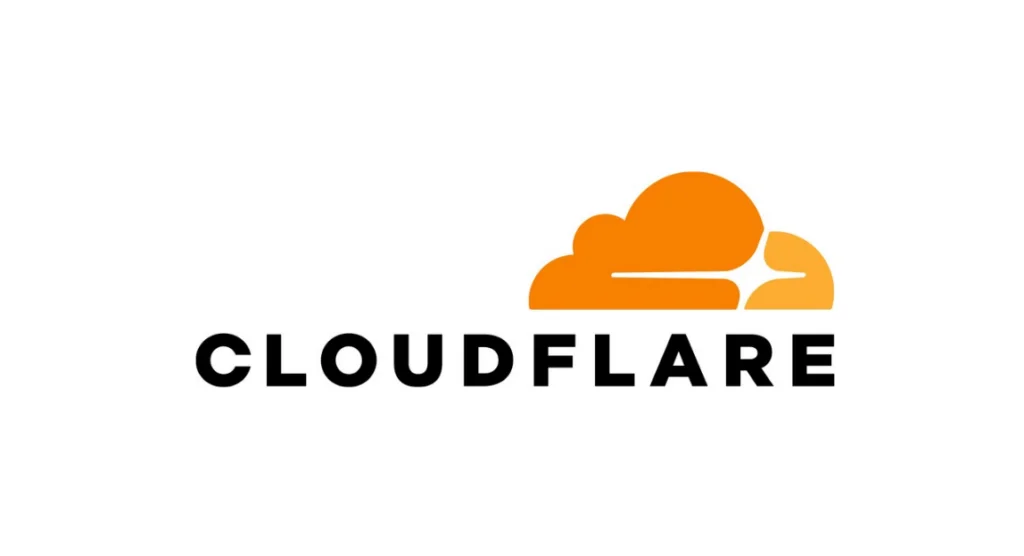 Quantum Matters: Why quantum is a board issue
Quantum Matters: Why quantum is a board issue
Quantum computing is a Board issue. Boards of Directors are, however, not aware of this, except in a minority of well-publicised cases.
Does this matter, even as billions of dollars pour into the industry, M&A is on fire – there are rumours that Alphabet is due to spin out its quantum unit – universities ramp up their teaching, and governments publicise their ever-larger contributions? It does. Without buy-in from the Boards of listed and unlisted companies, experimentation is held back, user cases are fewer, and progress in the quantum ecosphere is missing the firepower of the private sector, except for specialised venture capital firms.
There are several obstacles to Boards taking quantum seriously. These range from a lack of knowledge to it being seen as a purely tech matter with scarce impact on the business as a whole. However, the biggest impediment is a lack of time. The pandemic, regulation, geopolitical risk, and Environmental Social Governance (ESG) are the time-consuming priorities discussed at Board level.
To make inroads, the best strategy for governments and quantum firms seeking support and engagement is to emphasise how quantum can transform the sustainability and competitive position of companies, with cybersecurity improvements as the third leg of the stool.

SUSTAINABILITY
The outcomes of the recent United Nations Climate Conference (COP-26) Summit in Scotland were reported as positive. But environmental change cannot rely solely on countries and people polluting less.
The solution lies in technology, or in Bill Gates’s words: “innovation is the only way the world can cut net greenhouse gas emissions from roughly 51bn tonnes per year to zero by 2050.”
Quantum computing can help in myriad ways – see here. Already, in today’s era of noisy intermediate-scale quantum (NISQ) – when processors of over one hundred qbits are still not advanced enough to profit sustainably from quantum advantage – mobility firms like Volkswagen are experimenting on the optimisation of both their complex supply chains and bus routes in busy cities. These may not sound like ground-breaking trials, but the implication is a major cut in polluting footprints.
Or take the 100-year-old process for producing ammonia fertilizer, called Haber-Bosch. It consumes an estimated 3%-5% of all the natural gas produced on the planet. Quantum can help humanity understand how bacteria naturally produce ammonia using considerably less energy. The resulting ‘green ammonia’ would substantially reduce emissions in one of the major carbon dioxide polluting processes.
Over the last few years Boards of Directors of companies – from evident carbon polluters like oil & gas companies through to all others – have seen a sea change in how investors assess them. Larry Fink, who heads up the largest asset manager in the world, BlackRock, has stated that the impact of the environment will be transformational.
The CEO of the $9.5 trillion firm said in 2021: “I believe, more than ever before, that environmental issues and sustainability issues are going to become more and more dominant…”.
What this means in practice is that companies are having to disclose how their business model will be compatible with a net-zero economy, and “how this plan is being incorporated into your long-term strategy and reviewed by your Board of Directors.” (My italics).
And when the Board is involved, progress happens.
As an added bonus, Jon Hammant, Head of Compute for AWS in the UK, notes that quantum computing gives a helping hand to a sustainable future in another way. It has a smaller power consumption due to the exponential growth of its processing capacity via qbits, when compared to a classical computer, which in contrast uses ever more power.
COMPETITION
As well as the need for a sustainability transformation, Boards are focused on competition, alert to the possibility of a disruptive technology competitor which could make their company redundant in a snap.
The only defence is offence, or constant innovation, in which quantum stands to be a major helper. Intriguingly, there is no need to wait for the vast costs of building a quantum computer to come down – the cloud provides entry with variable, low costs.
Amazon’s AWS, Microsoft’s Azure and IBM’s Q all give clients access to a variety of quantum hardware from well-known names in the field like Rigetti, IonQ and D-Wave.
Alex Challans, Co-Founder of data platform, The Quantum Insider, sees huge growth in the quantum cloud confluence: “What we’re seeing is a market that could be worth four billion dollars by 2025 and 26 billion dollars by 2030.”
Diane Côté, the former Chief Risk Officer of the London Stock Exchange Group who now sits on the Board of French bank Société Générale, is adamant that firms need to be in the sandbox of quantum experimentation or be left behind as the technology ramps up exponentially.
HSBC provides a case study of how to participate at a minimum level to boost practical applications. Through the Next Applications of Quantum Computing (NEASQC) partnership, which involves a four-year EU grant, the global bank is working with academic and corporate partners to develop open-sourced software using quantum technology by 2022.
Others are taking bigger bets. Participants at the November 2021 City Quantum Summit * at the Mansion House in the City of London, heard Rigetti’s Head of Europe, Marco Paini, and Oxford Instrument’s Managing Director Stuart Woods, elaborate on a project with bank Standard Chartered to improve volatility predictions in financial markets.
The numbers tell the story: total capital raised in 2021 up to November is around $2.8bn, compared to $1.0bn in 2020, and $300m in 2019, according to The Quantum Insider.
The data platform highlights that average deal sizes have shot up as the industry moves from Seed – Series A to Series B to D, with a notable Series D round this year being $450m going into PsiQuantum. Increasing numbers of $100m+ rounds are forecast for 2022-2023.
A step up in Mergers & Acquisitions and SPACS is also expected. In 2021 Honeywell merged its quantum division with Cambridge Quantum, to form Quantinuum, In December 2021, US company Odyssey Therapeutics bought London-based Rahko, which is developing quantum computer software for drug discovery.
IonQ and Arqit are now listed via SPACS, with Rigetti going through the SPAC process at the time of writing.
CYBERSECURITY
The third way to capture the attention of Boards is to note the cybersecurity implications of quantum. There is, however, a caveat. Too many Directors and Non-Executive Directors delegate to their Chief Technology Officer or Chief Information Security Officer, neither of which are Board roles. The rare exception to this is when there is a breach and a crisis.
Yet cyber risk is a critical issue for Boards in terms of business continuity, loss of reputation and regulatory fines.
The US-based National Institute of Standards and Technology (NIST) is due to announce postquantum public-key cryptography standards in early 2022. Given the institution’s dominance in the Western world, there is little doubt this will prove a wake-up call to firms that have ignored the need to upgrade – a tedious, complex and time-consuming process, but one that is mission critical.
CONCLUSION
In October 2021 the White House held its first ever quantum Summit, followed a month later by the US and UK government announcing a wide-ranging cooperation agreement in quantum technologies. Awareness of the increasing advances and importance of quantum is starting to permeate through the corporate landscape.
2022-23 can be the time where Directors of corporates in the financial, manufacturing and retail sectors, among others, start to ask the question at Board meetings: what is our company’s strategy to incorporate quantum technology? But for the question to be asked, governments, quantum firms and quantum enthusiasts need to focus on explaining the massive advantages of becoming involved in a mind-boggling technology that can drive sustainability, profitability and security.
*Robinson Hambro is the organiser of The City Quantum Summit. To express interest in the October 11, 2022 Summit, please get in touch karina.robinson@robinsonhambro.com
This is a short version of an article that is due to appear in “Chancen und Risiken der Quantentechnologien”, to be published by Springer in Q1 2022, and which has articles by a variety of business and science leaders
For more market insights, check out our latest quantum computing news here.















